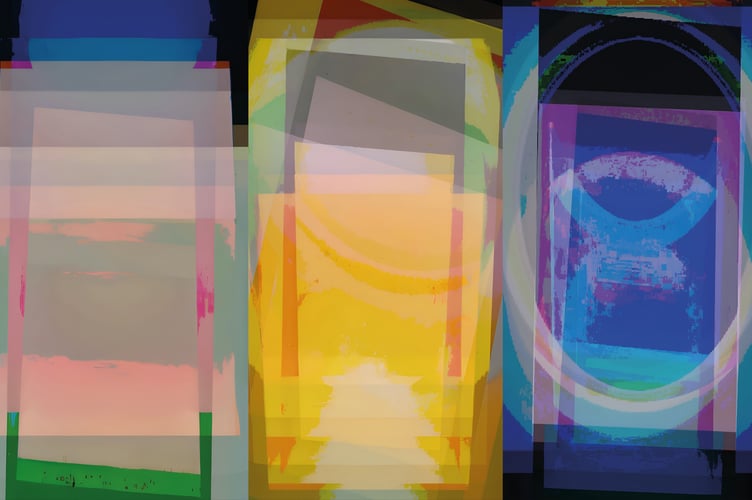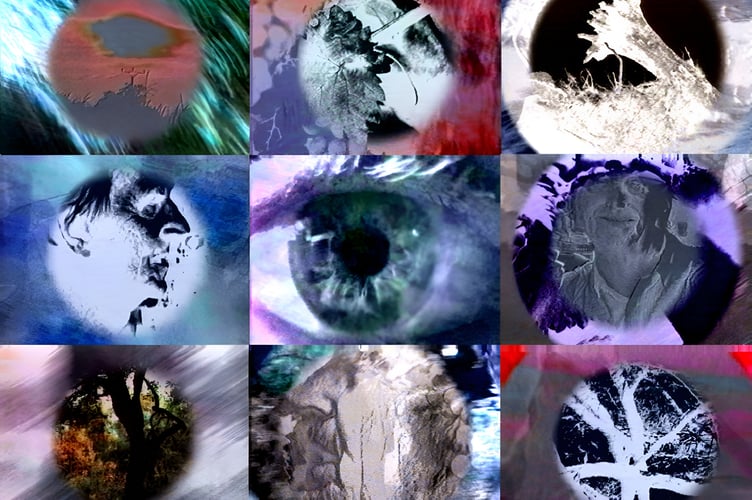Velarde Gallery, Kingsbridge, is hosting the world premiere of an art exhibition celebrating the works of world-renowned artist Malcolm Le Grice, which features the first ever synthetic DNA time capsule.
Born in Plymouth and a resident of Thurlestone between 1999 and 2022, Le Grice is a pioneering artist who discovered digital art in the sixties and has since blurred the lines between science, technology, and art.

Described by the British Film Institute (BFI) as "probably the most influential modernist filmmaker in British cinema," Le Grice's entire catalogue of 80-plus films is now held in the British Film Archive. His works are also represented in the permanent collections of the Tate, the Archives of the American Academy, the Royal Belgian Archive, the Museum of Modern Art in New York, the Pompidou Museum in Paris, and MoMA in Barcelona.
On display at the gallery is a collection of art co-curated by Malcolm and his son Oliver, some of which have never been publicly displayed or exhibited before. Alongside a range of Le Grice’s art and rediscovered films, a futuristic time capsule made of synthetic DNA will also be on show at this world-premiere exhibition.

Malcolm Le Grice's artwork, Horror Film 1, was transformed into DNA and packaged in a tiny metal capsule, predicted to last for 1,000 years without loss or data corruption. Believed to be the world’s first test case for the preservation of art using synthetic DNA, the time capsule project is the brainchild of an international team of artists, archivists, and scientists.

Professor Raja Appuswamy from Eurecom in France, the lead data scientist for the project, said that the preservation of cultural artefacts represents an important use case for the emerging technology of synthetic DNA. “Using current standards, data stored on magnetic media has a very short life—only about 20–30 years—after which it starts to lose integrity,” Appuswamy said. “DNA, when used as a storage medium, has several advantages over magnetic media. It is 10 million times denser than magnetic tape and can store 1 exabyte of data in 1 cubic millimetre. It can last millennia when stored at room temperature.”

In recent years, Malcolm’s son Oliver Le Grice has taken on the responsibility of curating his father’s legacy. Oliver notes that it is fitting for Malcolm’s work to be selected as the test case for this new art science experiment.
“My father’s practice has always existed at the intersection between art and science and questioned the artificial distinction between these disciplines. It is fascinating to see how his artwork, which in many ways deals thematically with DNA and generative systems, is now able to be made permanent using this new storage technology."
The collaboratively produced artwork Time Capsule will be on show at Velarde Gallery in Kingsbridge, along with a collection of past and never-before-exhibited works by Malcolm Le Grice, from 20 September to 19 October.




